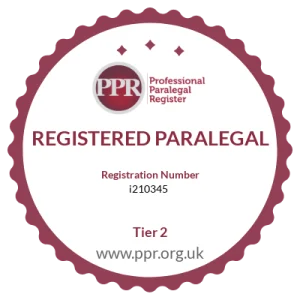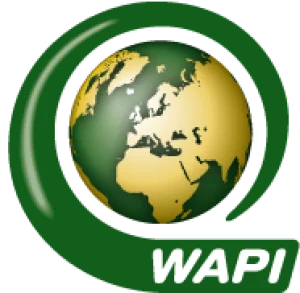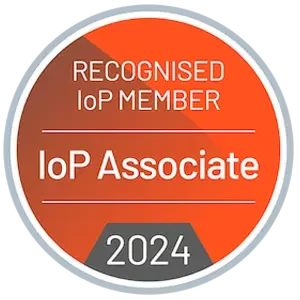
Germany Process Server
Germany Process Service Company
Process Serving in Germany
Germany Process Servers
Germany process servers serve judicial and non-judicial documents related to civil and commercial matters under the authority given to them by the Code of Civil Procedures or pursuant to the Hague Service Convention (Convention of 15 November 1965). Service of documents originating within Germany and getting served within Germany are served according to Germany’s Code of Civil Procedures. Documents originating in another country and getting served in Germany, are served under the Hague Service Convention or via Letters Rogatory while complying with the requirements of Germany’s Code of Civil Procedures.
The Hague Convention is a multilateral treaty adopted in Hague, Netherlands, on November 15, 1965, by member states of the Hague Conference on Private International Law. The convention came into existence in order to give litigants and other interested parties a reliable, cost effective and efficient means of serving documents on parties residing or operating in another country.
Method of Service
Personal service is the accepted mode unless another form is specified by the court in the state where the matter originated.
Alternate Methods of Service
The Hague Convention provides various modes of process service of documents such as by postal channel or by diplomatic/consular agents, judicial officers, officials, or other competent persons. These provisions are covered under Articles 8 to 10 and may or may not be allowed by member countries as a valid mode of serving the documents in their territory.
Serving the documents through the Central Authority (Article 5) is not optional but is binding on all the member countries. Services done by the Central Authority usually take a long time: 2 to 12 months. Note that the convention gives relief to the litigants if they have not received a certificate of service or delivery from the Central Agency even after waiting for six months. In such cases, the Court may, if it considers that a reasonable time has elapsed, give its judgment. Also, in case of urgency, the court may issue a provisional order or protective measure even before the six-month waiting period.
Service By Mail
Service by mail is possible only in states that have not objected to that method under Article 10(a) of the Hague Service convention and if the jurisdiction where the case case originates allows it under its applicable law.
Our Process
Documents can be emailed to us at operations@stellarkonsulting.com or posted at our US address at 5101 Santa Monica Blvd Ste 8 PMB1330 Los Angeles, CA 90029 United States, or at our Australian address at Level 6, 607 Bourke Street, Melbourne VIC 3000, Australia. Where timely service is a concern, it is best to just email us the documents. Along with the documents, please include as much detail as you have about the party to be served in as far as it relates to us being swiftly able to locate and serve that party.
You may also upload PDF versions of service documents to our website (click here to begin).
Office Locations
United States of America:
5101 Santa Monica Blvd Ste 8 PMB1330
Los Angeles, CA 90029
United States
Phone: + 1 (213) 786 1161
United Kingdom:
275 New North Road Islington 1896
London N1 7AA,
United Kingdom
Phone: +44 (20) 38905643
Australia, New Zealand and Far East Asia:
Level 6, 607 Bourke Street
Melbourne VIC 3000, Australia
Phone: +61 2 7259 7299
Middle East and Africa:
FAMC1732, Compass Building, Al Shohada Road
AL Hamra Industrial Zone-FZ, Ras Al Khaimah
United Arab Emirates
Phone: +44 (20) 38905643
Asia:
1 Dawood Street,
Shadman Colony, Gujrat 50700
Pakistan
Phone: +92 313-780-6280
Germany’s position on Hague Service Convention (Convention of 15 November 1965)
The Convention of 15 November 1965 on the Service Abroad of Judicial and Extrajudicial Documents in Civil or Commercial Matters (HCCH 1965 Service Convention) provides for the channels of transmission to be used when a judicial or extrajudicial document is to be transmitted from one Contracting Party to the Convention to another Contracting Party for service in the latter. The Convention establishes a main channel of transmission via a designated Central Authority, as well as alternative channels of transmission. The Convention deals primarily with the expedient transmission of documents; it does not address or comprise substantive rules relating to the actual service of process. The framework provided by the Convention is both efficient and effective – statistical data shows that 75% of requests are executed within two months.
Germany’s position on Convention of 18 March 1970 on the Taking of Evidence Abroad in Civil or Commercial Matters
In civil or commercial matters, a judicial authority of a Contracting State may, in accordance with the provisions of the law of that State, request the competent authority of another Contracting State, by means of a Letter of Request, to obtain evidence, or to perform some other judicial act. A Letter shall not be used to obtain evidence which is not intended for use in judicial proceedings, commenced or contemplated. The expression “other judicial act” does not cover the service of judicial documents or the issuance of any process by which judgments or orders are executed or enforced, or orders for provisional or protective measures.
Transmission of Letters of Requests
Germany accepts Letters of Requests written in or translated into German.
Germany PROCESS SERVICE COMPANY
HAGUE / FORMAL SERVICE
INFORMAL SERVICE
TRANSLATIONS
For formal service of process, most non-English speaking countries require the documents to be translated into one of their official languages. Always rely on a professional for translating legal documents as even a minute error can have drastic impact on legal enforceability and timely progress on a matter.
Get A Free Quote
RATES (all prices are in USDs)
Formal: $700.00
This rate is an estimate. Please provide the specific service address in order to receive exact price. Service of process fees are per defendant and per address.
Informal: $750.00
This rate is an estimate. Please provide the specific service address in order to receive exact price. Service of process fees are per defendant / per address.
Letters Rogatory
$1,165.00 plus government fee
International Rush Delivery
Please contact us for pricing and details. Service of process fees are per defendant / per address.
Translation
$0.28 per word
Proper nouns not translated. We have NAATI certified and non-NAATI translators on our panel who are experts in legal translations.
-
Formal Service of Process
Please provide the specific service address in order to receive exact price. Service of process fees are per defendant and per address. -
Informal Service of Process
Please provide the specific service address in order to receive exact price. Service of process fees are per defendant and per address. -
Letters Rogatory
Please contact us for a Free Quote. (*with additional government fee) -
International Rush Delivery
Please contact us for pricing and details. Service of process fees are per defendant / per address. -
Translation
Proper nouns not translated. We have NAATI certified and non-NAATI translators on our panel who are experts in legal translations. -
Copies
Billed at local rates per page. Please send us a message for pricing and details. -
Notary
Please send us a message for pricing and details. - Status Update. Please contact us to request an in-person status check to get updates.







